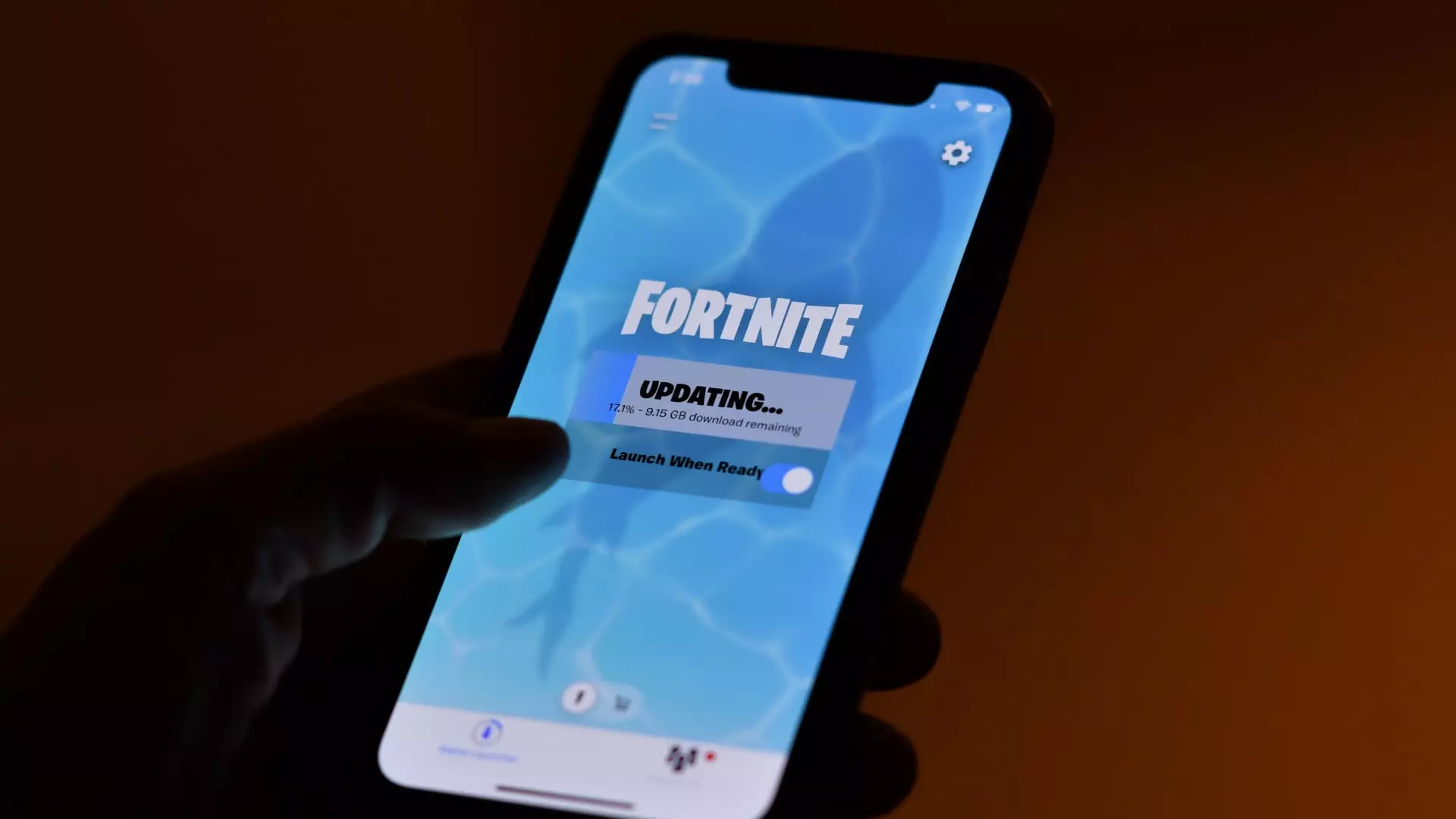The tussle between Apple and Epic Games over Fortnite’s presence in the iOS App Store has taken a turn toward a more intense legal confrontation. A recent court ruling has mandated that Apple must either resolve its issues with Epic Games swiftly or prepare to defend its actions in court. This ultimatum, issued by U.S. District Judge Yvonne Gonzalez Rogers, highlights the complexities surrounding digital marketplaces and the responsibilities tech giants have toward their developers and consumers. The entire saga is more than just a battle over a game; it symbolizes the broader fight over who controls digital commerce in the modern age.
Epic Games’ recent attempts to reinstate Fortnite were thwarted by Apple’s blockade, necessitating further legal action from Epic Games. The stakes are high, not just for the companies involved, but for millions of users who are enthusiastic about this beloved game. With Epic Games filing a motion to enforce a previously established injunction, the urgency of the matter cannot be overstated. Judge Rogers clarified her position, emphasizing that Apple has the capability to resolve this without further legal wrangling, but it seems the company is dragging its heels.
Apple’s Stubbornness and the Implications for Developers
Apple’s stance raises several questions about its intentions and its relationship with app developers. The company has been known for its stringent control over its App Store, which has drawn criticism from developers who claim that Apple’s policies stifle innovation and create monopolistic barriers. The recurring theme in this saga is Apple’s reluctance to embrace a developer-friendly ethos.
The judge’s insistence that Apple must send a high-ranking official to court if the issue isn’t resolved is a significant message. It asserts that Apple cannot simply evade accountability in the ongoing legal landscape it has helped create. The implication here is profound: Apple must be prepared to justify its actions to a court that is closely watching its maneuvers regarding its app store policies. The situation illustrates a broader dilemma many technology companies face: balancing profitability with fair play in an increasingly scrutinized digital economy.
The Future of App Distribution After the Ruling
This court case serves as a flashpoint for the future of app distribution. The ramifications of Judge Rogers’ previous ruling have already led companies like Spotify and Amazon Kindle to alter their approaches towards app monetization. This trend of diversifying payment methods raises the possibility that more developers will explore alternatives beyond the App Store, undermining Apple’s long-standing revenue model.
Epic Games CEO Tim Sweeney’s posts on social media have further fanned the flames of this dispute. By stating that Apple is ignoring their submission until the appellate court rules, Sweeney positions Epic Games as a torchbearer for developer rights, while painting Apple as a corporate entity unwilling to engage in fair discussions with its partners. This narrative resonates with many independent developers who have long complained about the payment monopolization imposed by Apple’s ecosystem.
While Apple may have won some battles in the courtroom, the war over control of app distribution is ongoing and contentious. The recent developments have sparked conversations about potential regulatory reforms that could level the playing field for app developers. The rise of alternative distribution models could be on the horizon, driving significant change to app economics as we know them, whether Apple likes it or not.
Legal Troubles as a Catalyst for Change
The tension between Apple and Epic Games, while troubling, has created an unintended catalyst for change within the tech industry. The courtroom drama surrounding the Fortnite saga alters how developers view their relationship with tech giants like Apple. As this legal battle unfolds, it becomes glaringly evident that the status quo is being challenged.
Tech companies must now consider how their practices are perceived not just by users, but also by regulators and competitors. As the dynamics of app distribution continue to evolve, pressures will mount for companies to adapt to a more open and fair marketplace.
This litigation has implications far beyond a single game. It embodies a larger movement—a demand for transparency, fairness, and more equitable treatment in the digital landscape. As these events continue to unfold, the world will be watching closely to witness how this fight shapes the future of mobile applications and the broader tech industry.


Leave a Reply